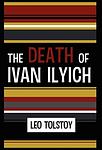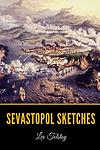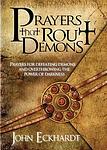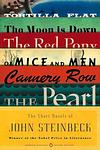Leo Tolstoy
Leo Tolstoy was a renowned Russian author, one of the greatest writers of realistic fiction and moral philosophy. He is best known for his epic novels 'War and Peace' (1869) and 'Anna Karenina' (1877), which are considered masterpieces of world literature. Tolstoy's works are notable for their complex characters, detailed depiction of Russian society, and deep exploration of ethics and morality. In addition to his literary achievements, Tolstoy was also a prominent thinker and social reformer, advocating for nonviolent resistance and influencing the development of Christian anarchism.
Books
This list of books are ONLY the books that have been ranked on the lists that are aggregated on this site. This is not a comprehensive list of all books by this author.
-
1. Anna Karenina
Set in 19th-century Russia, this novel revolves around the life of Anna Karenina, a high-society woman who, dissatisfied with her loveless marriage, embarks on a passionate affair with a charming officer named Count Vronsky. This scandalous affair leads to her social downfall, while parallel to this, the novel also explores the rural life and struggles of Levin, a landowner who seeks the meaning of life and true happiness. The book explores themes such as love, marriage, fidelity, societal norms, and the human quest for happiness.
-
2. War and Peace
Set in the backdrop of the Napoleonic era, the novel presents a panorama of Russian society and its descent into the chaos of war. It follows the interconnected lives of five aristocratic families, their struggles, romances, and personal journeys through the tumultuous period of history. The narrative explores themes of love, war, and the meaning of life, as it weaves together historical events with the personal stories of its characters.
-
3. The Death of Ivan Ilyich
The book is a poignant exploration of mortality and the human condition, focusing on a high-court judge in 19th-century Russia who lives a seemingly successful and conventional life. However, when he is confronted with a terminal illness, he begins to question the meaning and value of his life, leading to an existential crisis and eventual spiritual awakening. Through his struggle, he comes to realize the superficiality of his previous life and the importance of genuine human connection. His story is a profound commentary on the nature of life, death, and the pursuit of happiness.
-
4. Resurrection: A Novel
"Resurrection: A Novel" is a profound exploration of moral responsibility and the possibility of redemption. The story revolves around a nobleman who, in his youth, seduces and abandons a young servant girl. Years later, he encounters her as a prostitute on trial for murder. Overwhelmed by guilt for his role in her downfall, he decides to atone for his sins by dedicating himself to her defense and rehabilitation. The novel grapples with themes of morality, justice, and the human capacity for change.
-
5. The Kreutzer Sonata: And Other Stories
"The Kreutzer Sonata: And Other Stories" is a collection of novellas and short stories that delve into the complexities of human relationships and emotions. The central story revolves around a man who, consumed by jealousy and suspicion, murders his wife and then grapples with the guilt and moral implications of his actions. The other stories in the collection explore themes of love, lust, morality, and the human condition, reflecting the author's deep philosophical and religious beliefs.
-
6. The Cossacks
The novel is a coming-of-age story that follows the journey of a young Russian aristocrat who, disillusioned with his privileged life and the superficiality of society, seeks meaning and authenticity. He joins a Cossack community in the Caucasus, where he is drawn to the simplicity and vigor of their lifestyle. As he becomes entangled in the local conflicts and customs, he falls in love with a Cossack girl, which leads to a deep internal struggle between his previous values and his newfound admiration for the Cossack's way of life. The protagonist's journey is one of self-discovery, cultural immersion, and the quest for a genuine existence amidst the backdrop of the rugged and unforgiving landscape of the Russian frontier.
-
7. Hadji Murat
The novella centers on the real-life figure Hadji Murat, a 19th-century Chechen rebel commander who, after a falling out with his own leader, Imam Shamil, defects to the Russians for a chance to avenge his family. Caught between the complex military and cultural conflicts of the Russian Empire and the fiercely independent Chechen tribes, Murat's struggle for honor, survival, and revenge reflects the brutal realities of the Caucasian War. As he navigates the treacherous political landscape, his story becomes a poignant exploration of loyalty, betrayal, and the dichotomies of human nature.
-
8. Childhood
The book is a classic coming-of-age story that delves into the inner world of a young boy as he experiences the joys, sorrows, and confusions of his early years. Through the protagonist's eyes, readers explore the complexities of family life, the challenges of growing up, and the profound impact of personal relationships on one's development. The narrative captures the innocence of childhood and the gradual loss of that innocence as the boy confronts the realities of the world around him, painting a poignant and introspective portrait of the transition from childhood to adolescence in 19th-century Russia.
-
9. Sevastopol Sketches
The book is a collection of three short stories, each offering a vivid and gritty portrayal of the Siege of Sevastopol during the Crimean War. Through the eyes of various characters, ranging from a young and naive officer to seasoned and weary soldiers, the narrative delves into the brutal realities of warfare, the camaraderie among the troops, and the heroism and sacrifice on the front lines. The author's own experiences as a participant in the siege lend authenticity to the detailed descriptions of the battles, the strategies employed by both sides, and the daily struggles of life in the besieged city, ultimately presenting a poignant meditation on the nature of war and the human condition.
-
10. The Power Of Darkness
"The Power of Darkness" is a harrowing drama that delves into the depths of human depravity and the struggle for redemption. Set in rural Russia, the narrative follows a peasant named Nikita, who, driven by lust and greed, becomes entangled in a web of tragic events, including adultery, infanticide, and deception. As the consequences of his actions spiral out of control, the story exposes the stark realities of the moral decay and the social ills of the time. The play ultimately confronts the audience with the profound impact of sin and the possibility of forgiveness, posing challenging questions about the nature of evil and the potential for moral transformation.
-
11. Short Novels
This collection brings together several of the most significant works by a renowned Russian writer, showcasing his mastery in exploring the human condition, morality, and society through fiction. The novellas within this compilation vary in theme and scope, ranging from the psychological turmoil of a man contemplating suicide, the moral dilemmas faced by a judge, to the spiritual awakening of a privileged aristocrat during wartime. Each story delves deep into the characters' inner conflicts, societal norms, and the search for meaning in life, all while critiquing the social and political issues of the time. The author's profound insights into human nature and his skillful storytelling make these short novels timeless classics that continue to resonate with readers around the world.
-
12. A Confession
In this philosophical treatise, the author embarks on a profound existential inquiry, reflecting on the crisis of meaning in his own life. Despite his literary success and social standing, he is plagued by a deep sense of despair and contemplates suicide. Through an intense process of questioning and self-examination, he explores various avenues of thought, including science, philosophy, and the wisdom of the common people. Ultimately, he finds solace in the Christian faith, embracing a spiritual awakening that leads him to a new understanding of life's purpose and a rejection of his previous materialistic and hedonistic lifestyle. The work is a candid exploration of the author's search for truth and the moral and spiritual convictions that result from this quest.










